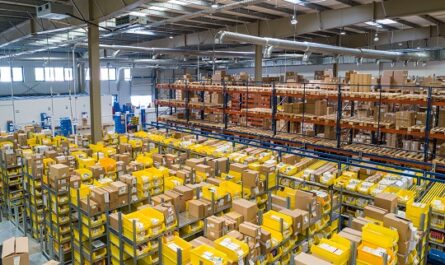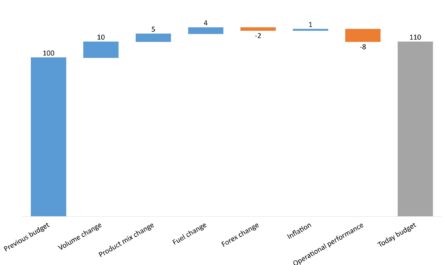Pallets are an essential part of modern manufacturing and warehousing processes. They provide a sturdy and reliable platform for transporting goods, and they play a critical role in ensuring efficiency, productivity, and safety.
However, one question that often comes up is whether pallets should be dedicated to specific working areas or if they can be used as general-purpose pallets throughout the factory.
In this blog post, we’ll explore both options and highlight some best practices for managing pallets in a factory setting.
But before we delve deeper, make sure you have joined the scmguide telegram channel to receive notifications of the latest posts from this blog as well as more insights on supply chain management.
Table of Contents
The case for dedicated pallets
Having dedicated pallets for specific working areas offers a range of benefits that can positively impact a company’s bottom line.
One of the most significant advantages is increased efficiency and productivity.
When pallets are dedicated to specific working areas, they don’t need to be moved around the factory as frequently, which saves time and effort.
This means that workers don’t have to spend as much time locating and moving pallets, which can translate into increased efficiency and productivity.
In addition to increased efficiency, dedicated pallets also offer reduced risk of contamination and product damage.
When pallets are used for specific products or materials, there’s a lower risk of contamination or damage to the product. This is especially important in industries such as food and pharmaceuticals, where contamination can have serious consequences.
By dedicating pallets to specific areas or materials, companies can ensure that products are transported safely and hygienically, which can help to reduce the risk of product recalls and replacement costs.
Although it may require an initial investment, having dedicated pallets can also save money in the long run.
By reducing the risk of damage and contamination, companies can avoid costly product recalls and replacement costs.
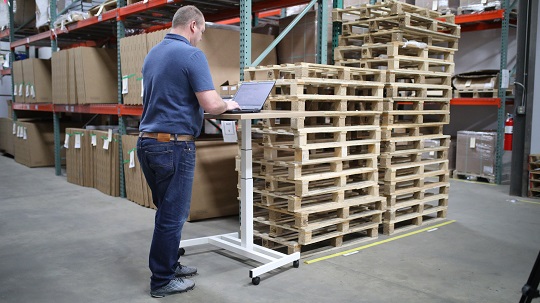
Additionally, dedicated pallets can reduce the need for additional equipment, such as forklifts, as fewer pallets need to be moved around the factory. This can lead to cost savings in terms of equipment maintenance and repair, as well as reduced energy costs due to fewer machines being used.
Dedicated pallets offer a range of benefits that can positively impact a company’s efficiency, productivity, and bottom line.
By reducing the need for frequent pallet movement, reducing the risk of contamination and product damage, and potentially leading to long-term cost savings, companies can benefit greatly from having pallets dedicated to specific working areas.
You might also like:
- Separating or Combining SCM Departments: Factors to Consider
- Delivering on Customer Expectations: Why Shipping Options Matter in E-commerce
The case for general-purpose pallets
General-purpose pallets have their own set of advantages, which make them a viable option for some businesses.
One of the primary benefits is their flexibility in operations and production processes.
General-purpose pallets can be used in a variety of different settings, which allows for greater flexibility in the factory. This can be especially helpful in industries that require frequent changes to production lines or processes.
By using general-purpose pallets, companies can easily adapt to changes and adjust their processes accordingly, without having to worry about dedicated pallets for each area.
Another significant advantage of using general-purpose pallets is reduced capital investment.
Having dedicated pallets for each working area can be more expensive, especially for small or medium-sized businesses.
By using general-purpose pallets throughout the factory, companies can save money on pallets and related equipment, which can help to minimize costs.
General-purpose pallets are also easy to replace and repair. Since they are used throughout the factory, they can be easily replaced or repaired if they become damaged. This can help to reduce downtime and ensure that operations continue to run smoothly.
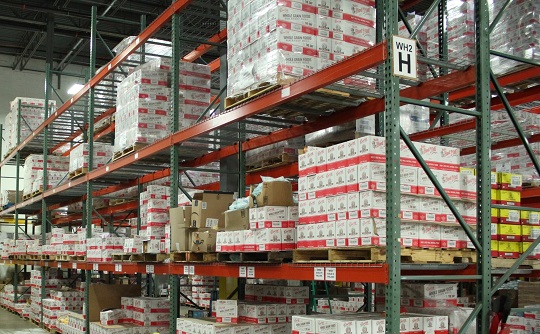
Overall, while dedicated pallets offer some benefits, general-purpose pallets can provide flexibility and cost savings to companies that are looking for a more versatile option.
By using general-purpose pallets, businesses can benefit from greater flexibility in operations, reduced capital investment, and ease of replacement and repair.
Factors to consider in choosing pallets
When deciding whether to use dedicated or general-purpose pallets, there are several factors to consider. These include:
Type of product being transported: Some products may require specialized pallets due to their size, weight, or fragility.
Working environment and conditions: The working environment can affect the type of pallets needed. For instance, in wet or humid environments, plastic pallets may be a better option than wooden ones.
Safety regulations and compliance: Companies need to ensure that the pallets they use comply with safety regulations and guidelines.
Budget and cost considerations: Companies need to balance the benefits of dedicated pallets with the costs involved, including purchase, maintenance, and replacement costs.
You might also like:
- Building a New SCM Department from Scratch: Obstacles and Solutions
- The Temptation of Adopting Every New Technology: Should All Businesses Follow Suit?
Best practices in pallet management
Effective pallet management is crucial to ensure the safe and efficient transport and storage of goods. Regardless of whether a company uses dedicated or general-purpose pallets, there are several best practices to follow in pallet management.
One of the most important practices is regular inspection and maintenance. Pallets need to be inspected regularly for damage and wear and tear.
Damaged pallets should be repaired or replaced as soon as possible to avoid safety issues. Regular maintenance can help to extend the lifespan of pallets and reduce the need for replacements.
Proper handling and storage are also essential for pallet management. Pallets should be handled and stored properly to avoid damage and contamination.
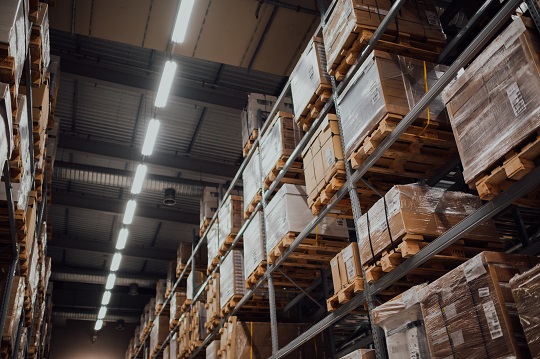
This includes ensuring that they are not overloaded, stored in a dry and clean environment, and not exposed to extreme temperatures.
By following proper handling and storage practices, companies can help to prevent damage to the pallets and the goods they transport or store.
Tracking and record-keeping are also important aspects of pallet management.
Companies should keep track of the pallets they use, including the number of pallets, their condition, and their location.
This can help to improve inventory management and reduce the risk of pallet loss or theft.
Keeping accurate records can also help companies to identify trends or issues with pallet use and make informed decisions about their pallet management practices.
Finally, staff training and education are critical to pallet management.
Employees should be properly trained on pallet handling and storage to avoid accidents and damage.
Proper training can help to ensure that employees handle pallets safely and efficiently, reducing the risk of accidents or damage to the pallets or goods they transport.
Effective pallet management is essential for any company that uses pallets for transportation or storage.
By following best practices such as regular inspection and maintenance, proper handling and storage, tracking and record-keeping, and staff training and education, companies can improve their pallet management practices, reduce costs, and ensure the safe and efficient transport and storage of goods.
Conclusion
In conclusion, whether to use dedicated or general-purpose pallets depends on a company’s specific needs and circumstances.
Both options have their advantages and disadvantages, and companies need to carefully consider their options before making a decision.
Regardless of which option is chosen, proper pallet management is essential to ensure efficiency, productivity, and safety in the factory.
Regular inspection, proper handling, tracking and record-keeping, and staff training are all critical components of pallet management.
Ultimately, the choice between dedicated or general-purpose pallets will depend on a company’s specific needs and circumstances.
It’s important to carefully consider the advantages and disadvantages of each option, as well as factors such as the type of product being transported, the working environment and conditions, safety regulations and compliance, and budget and cost considerations.
By following best practices in pallet management, companies can ensure that their pallets are properly maintained and used, which can help to increase efficiency, reduce costs, and improve safety in the factory.
Hope it is useful!
Please also share this article with your colleagues so that they can benefit from it as well. Join our scmguide telegram channel to receive notifications of the latest posts from this blog and gain more insights into supply chain management. All articles on this blog are free for you to use for any purpose, including commercial, without the need for attribution.

 by
by 